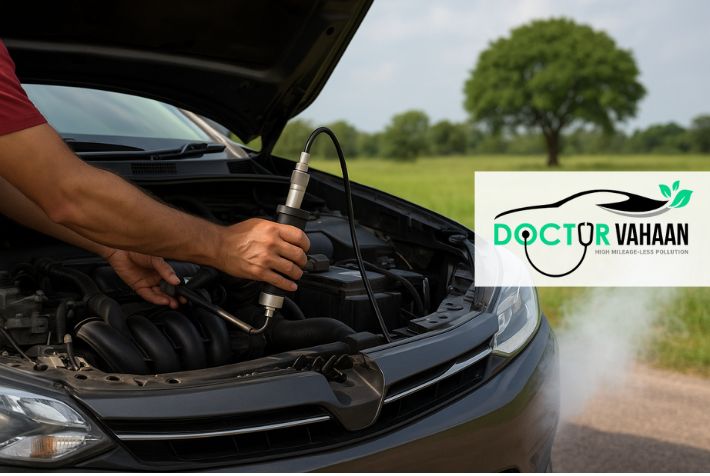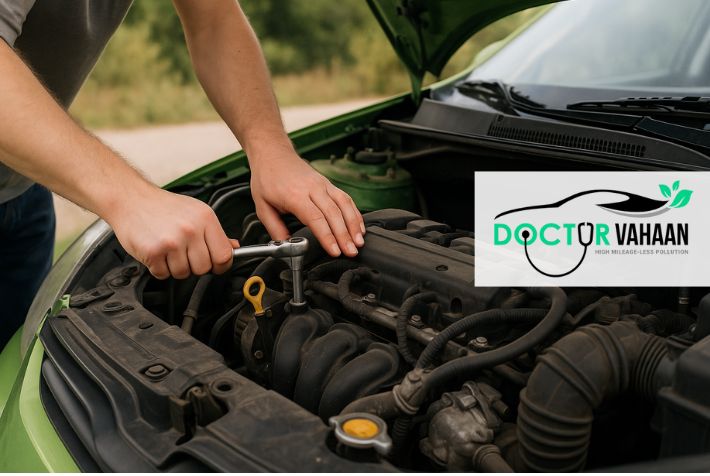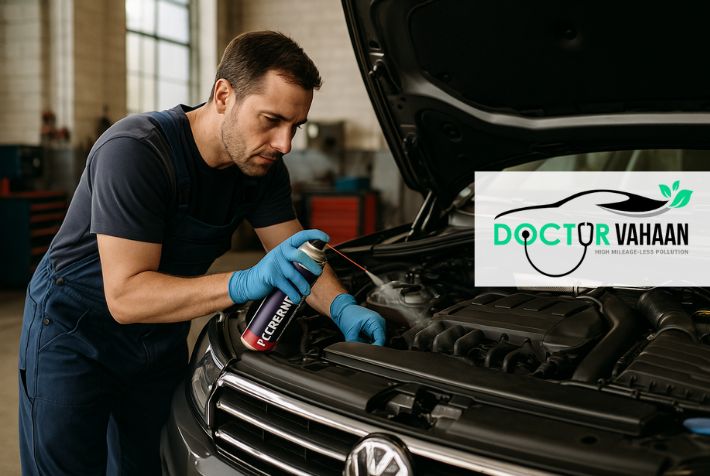Diesel Emissions Harm Urban Air Quality: Get a Perfect Solution
25 Jun 2025

With the massive use of diesel vehicles, urban air quality is deteriorating rapidly, and diesel emissions are one of the leading causes. As millions of diesel vehicles navigate the roads daily, they significantly damage air quality, public health, and the environment. But do you think it is justifiable to harm the environment and public health due to the unplanned use of diesel vehicles and the release of harmful carbon dioxide into the environment?
As a rational citizen, it is your 1st duty not to harm others to fulfil your desire to drive a diesel car. Now, what is the solution? Diesel car decarbonization is the only solution that can protect your car engine for a long time, save the environment from poor-quality air, and protect public health. Now, let’s discuss the harmful effects of diesel emissions and how to protect the environment by performing engine decarbonization in your diesel car.
Diesel Emissions and Its Significant Environmental Impacts
The diesel engine is primarily known for its fuel efficiency and impressive power generation capabilities. However, a diesel car can be harmful to the environment if it is not maintained properly. In such cases, diesel emissions occur, and they have a major impact on the environment.
Diesel car engines convert the chemical energy contained in the fuel into mechanical power. Diesel fuel is compressed inside the engine cylinder under high pressure, where it mixes with air and undergoes combustion. The exhaust gases released from the engine contain several harmful contaminants that have a negative impact on public health.
- Carbon monoxide and unburnt hydrocarbons are released into the air due to the incomplete combustion of fuel.
- Sulfur dioxide is also formed from the sulphur present in the diesel fuel. Sulfur oxides have a significant impact on the environment, causing acid rain.
- Nitrogen oxides that are released from diesel cars make a significant contribution to smog and create respiratory problems.
- Black carbon is a significant climate pollutant released from unburned diesel fuel.
What is Decarbonization in Diesel Vehicles?
Engine decarbonization is a specialised process that removes carbon deposits from within the engine and exhaust system. Over time, using diesel cars, diesel engines accumulate carbons in several engine areas, such as
- The injectors
- The diesel particulate filter
- The intake manifold
- The exhaust gas recirculation valve
- The turbocharger
The carbon buildup in diesel car engines reduces engine efficiency, increases fuel consumption, and contributes to higher emissions of diesel.
Through decarbonization, you can enhance the engine capacity of your diesel car, reduce fuel consumption, improve car mileage, and extend the service life of your diesel car.
How Decarbonization Protects Your Car and the Environment
If you want to protect your car and use it for a long time without damaging the environment or public health, consider diesel car decarbonization for your favourite car. Let’s discuss how decarbonization enhances engine quality and improves air quality.
1. Reduces harmful emissions
By cleaning the integrated engine parts, decarbonization enhances better combustion and reduces the emission of black smoke and other harmful components.
2. Support Diesel particulate filter or DPF Function
The diesel particulate filter (DPF) process involves removing accumulated ash and soot from the engine’s filter. This process can enhance engine performance, protect the engine from severe damage, and increase fuel efficiency. DPF is a crucial component of decarbonization, ensuring the proper filtration of fine particles.
3. Better fuel efficiency
Decarbonization can improve engine performance and reduce fuel consumption by generating the same power. Thus, it can reduce carbon dioxide emissions per kilometre driven.
4. Improve urban air quality
The emissions from a vast number of cars can drastically damage the air quality in highly populated areas. By experiencing decarbonization, it leads to better air quality.
Conclusion
Due to its cost-effective and environmentally friendly nature, decarbonization should be your ultimate solution for maintaining the health of your diesel car engine. Diesel car owners must consider decarbonization to improve urban air quality. Contact Doctor Vahaan regarding a budget-friendly and customized decarbonization process for your diesel car engine. We utilise the best technology for decarbonization that does not harm your car’s body and enhances the engine capacity.







